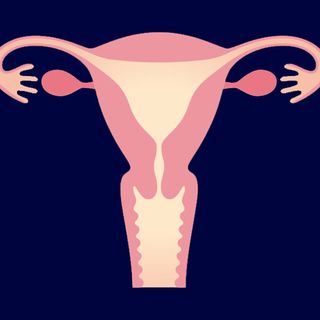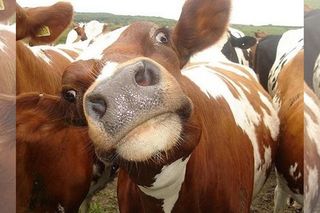
Cow Urine Does Not Cure Cancer
Recent claims that it does are driven by ideology, not science.

Yesterday, Times of India blared a headline that scientists in Gujarat had proved cow urine therapy can cure cancer. They have not, and it cannot.
The report’s first sentence makes it clear how blatantly misleading this headline is. “Biotechnology scientists at Junagadh Agriculture University have succeeded in their first attempt to kill cancer cells using cow urine,” TOI reported. Killing cancer cells in a laboratory setting is very, very different than curing cancer; the latter is difficult, while the former is actually quite easy. Bleach kills cancer cells in a lab. So does too much heat, or too much cold. So do many other things that aren’t at all viable cures for cancer in human bodies — including, apparently, cow urine.
The researchers themselves, according to TOI, say cow urine therapy can cure mouth, cervix, lungs, kidney, skin and breast cancers, a claim that reeks of confirmation bias. The astronomical breadth of this statement should also be a tip-off that it’s untrue. These organs, in function and in tissue, are nothing alike, nor are the cancers that affect them. In fact, the more scientists study cancer, the more it becomes clear how incredibly complex and varied it is — many different diseases, each with variations, not just one. A single disease — breast cancer, for instance — has many different potential treatments, simply because we now know there are many different types of breast cancer, due to highly individualized genetic and environmental factors. The idea that all versions of even one type of cancer, say, lung cancer, could be cured by the exact same treatment is outdated. The idea that one single treatment could cure all types of cancer is laughable.
“Scientific advancement requires independent confirmation and progress is incremental,” a neuroscientist told us in 2016, when we asked him how to be more discerning readers of health news. Any claims of miracle cures are false, he added.
But the team behind this research is uninterested in independent confirmation.
“The next step is to experiment it on a rat. Once this is successful, we will create oral pills for different types of cancer,” assistant professor Shraddha Bhatt told TOI.
This is a remarkable display of disregard for both human safety and scientific process. But then, perhaps neither is the underlying thrust of this research as much as validating a strange government priority. As Vasudevan Mukunth writes for The Wire:
“Much the AYUSH ministry’s thrust has been through efforts to promote the use of cow urine as a form of medication. According to a PTI report on November 25, [AYUSH Minister Shripad] Naik said in a statement that ‘the Council of Scientific and Industrial Research (CSIR) through its constituent laboratories has conducted research studies in collaboration with Go-Vigyan Anusandhan Kendra, Nagpur, on cow urine distillate for its antioxidant and bio-enhancing properties on anti-infective and anti-cancer agents and nutrients.'”
Mukunth goes on to explain all of the myriad problems with this (it’s worth a read). The most obvious one based on this statement is that antioxidants, at one point the Great Hope of cancer treatment, have long since been found to aid in the diseases progression.
There is health value in many natural and Ayurvedic prescriptions, and the fact that allopathic medical research has not done a better job at recognizing and exploring these avenues has led to a reactionary legitimacy being given where it has not yet been earned. Years of anecdotal and observational evidence does not award the same validity as methodical, repeated and independently verified experimentation.
Even if it did, one wonders how cow urine came to achieve such a level of government backing versus other traditional treatments. The fact that no other animal’s urine — a waste product, let’s not forget — seems to contain such special properties smacks of ideology rather than science. If only that were as easy to kill, in a laboratory setting, as cancer cells.
Liesl Goecker is The Swaddle's managing editor.
Related


Delhi Gov Says Schools’ Mental Health Curriculum Will ‘End Terrorism, Pollution’
